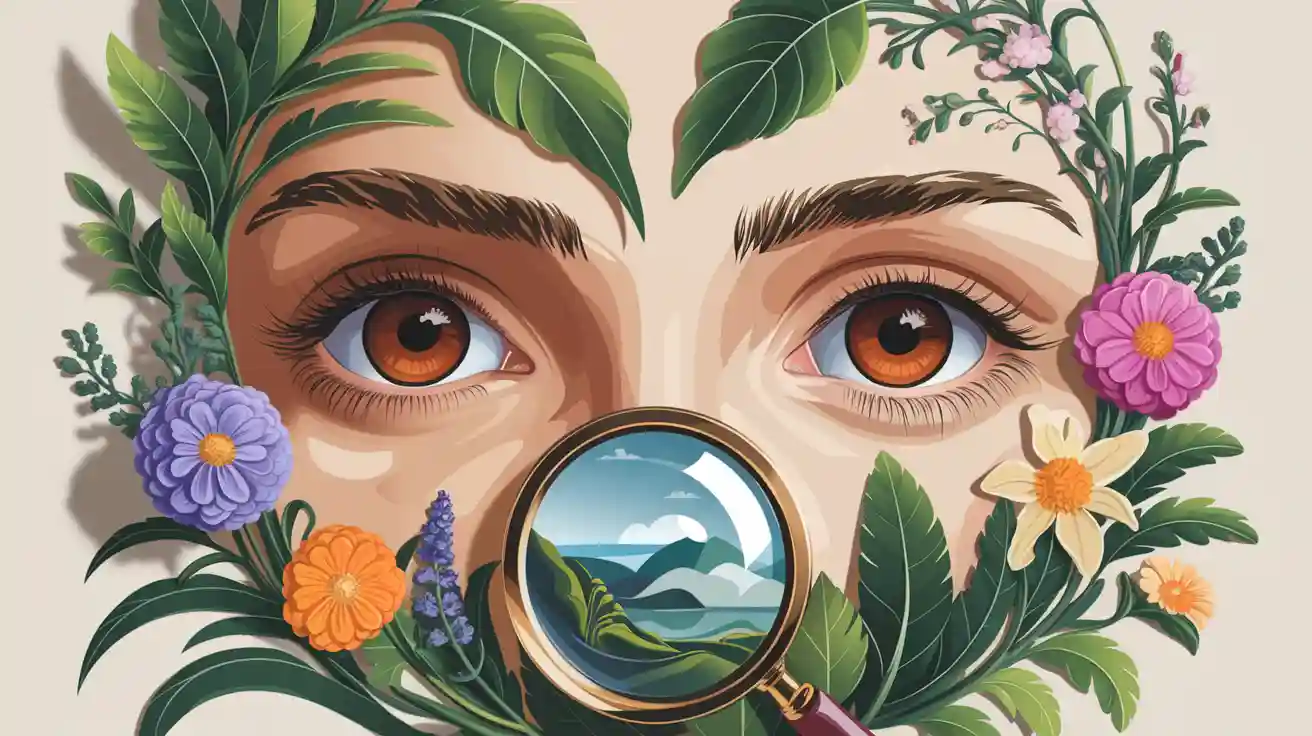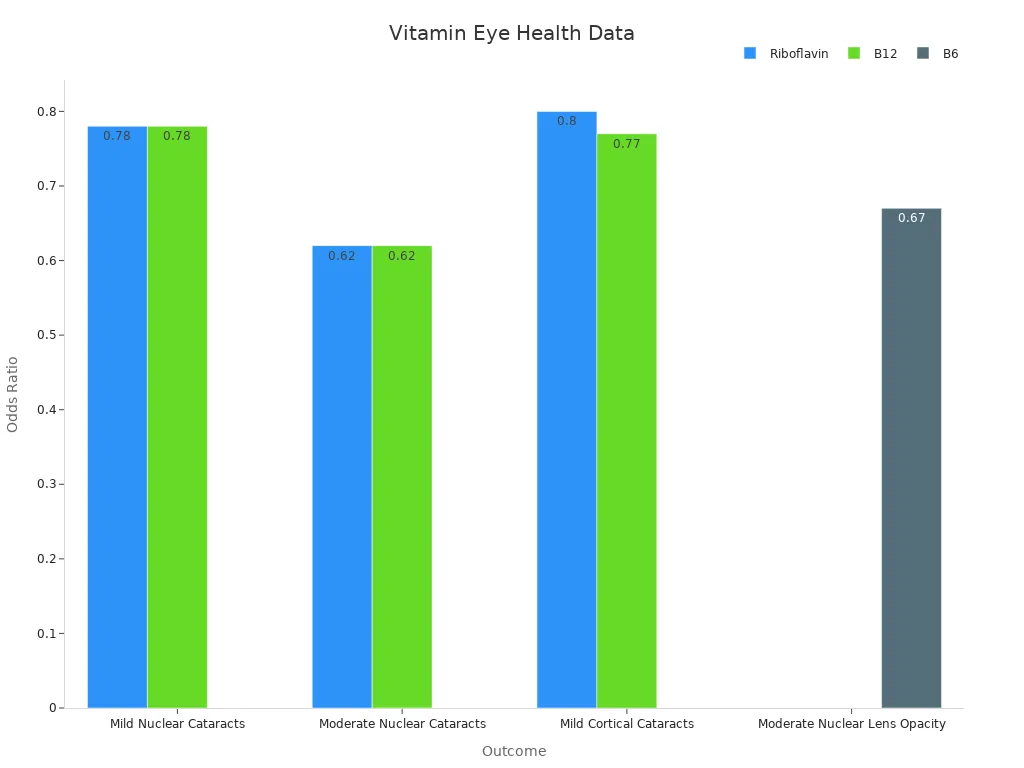
Your eyes play a crucial role in helping you see and enjoy the world around you, making Eye Health and Vision Improvement essential. Taking care of them is very important. While surgeries like LASIK can improve vision—93% of people achieve 20/20 vision or better, studies say—simple habits can also keep your eyes healthy.
Spending time outside, following good routines, and eating healthy foods are great ways to promote Eye Health and Vision Improvement.
Research shows LASIK enhances life for 95% of people, but good habits are vital for maintaining your eye strength over time.
Small changes today can help protect your eyesight for the future.
Key Takeaways
Spend more time outdoors to reduce the risk of nearsightedness. Aim for at least two hours daily to keep your eyes healthy.
Follow the 20-20-20 rule: every 20 minutes, look at something 20 feet away for 20 seconds to ease eye strain.
Regular eye exams are crucial. They can catch problems like glaucoma early, helping to protect your vision.
Healthy Habits for Better Eye Health
Spend time outside to lower nearsightedness risk
Going outside is not just fun; it helps your eyes too. Research shows spending an extra hour outdoors daily can lower the chance of getting nearsightedness. Sunlight slows down nearsightedness, especially in kids.
-
More outdoor time can lead to:
Lower risk of nearsightedness (RR, 0.66; 95% CI, 0.49 to 0.89).
Slower worsening of nearsightedness (0.13 diopter/year; 95% CI, 0.08 to 0.18).
Less eye length growth (−0.03 mm/year; 95% CI, −0.05 to −0.00).
Places like Taiwan and Singapore suggest kids spend two hours outside daily. Playing soccer or walking in the park can help keep your eyes healthy.
Use the 20-20-20 rule to ease eye strain
Looking at screens for hours can make your eyes tired. The 20-20-20 rule is a simple way to rest them. Every 20 minutes, look at something 20 feet away for 20 seconds. While it may not fully stop digital eye strain, it helps your eyes relax and refocus.
Wear sunglasses to block harmful UV rays
Sunglasses are more than just stylish—they protect your eyes. UV rays from the sun can harm your eyes and cause cataracts or other problems. Choose sunglasses that block 100% of UVA and UVB rays. Polarized lenses also cut glare, making them great for outdoor fun. Even on cloudy days, UV rays can hurt your eyes, so always wear your shades!
Reduce screen time to avoid dry eyes
Too much screen time can make your eyes dry and tired. A study of college students found those using screens for over six hours had worse dryness. Try to spend less time on screens. If you can’t, use blue light filters and take breaks often to rest your eyes.
Quit smoking to protect your vision
Smoking is bad for your lungs and your eyes. Smokers are more likely to get cataracts and macular degeneration. Quitting smoking lowers these risks. For example, people who quit 20 years ago have a 20% lower chance of cataracts than current smokers. Stop smoking today to save your eyesight.
Drink water to keep your eyes moist
Drinking water is important for healthy eyes. Staying hydrated keeps your eyes from feeling dry or blurry. Adults should drink 12–16 glasses of water daily. Water also helps make tears, which keep your eyes comfortable and moist.
Sleep well to let your eyes recover
Your eyes need rest after working all day. Poor sleep can cause dry eyes. About 36.4% of people with dry eyes also have bad sleep. Aim for 7–9 hours of good sleep each night. Avoid blue light before bed to sleep better and reduce eye strain.
Exercise to improve blood flow to your eyes
Exercise is good for your whole body, including your eyes. It helps blood carry oxygen and nutrients to your eyes. Studies show exercise lowers eye pressure by 6.4% and improves vision tests. Walking, yoga, or gym workouts can keep your eyes healthy and strong.
Vitamins and Nutrients for Better Eye Health

Vitamin A for healthy corneas and seeing in dim light
Vitamin A keeps your corneas strong and helps you see in low light. Foods like carrots, spinach, and sweet potatoes are full of this vitamin. In China, carrots provide 28.33% of daily vitamin A intake, about 103.49 ugRAE/day! But most people don’t get enough. Men need 800 ugRAE daily, and women need 700 ugRAE. Eating more vitamin A-rich foods can improve your vision, especially at night.
Here’s how a diet rich in vitamins helps your eyes:
Study |
Findings |
Benefit |
|---|---|---|
AREDS1 |
Vitamins C, E, β-carotene, zinc, and copper lower AMD risk |
|
Diet Advice |
Eating fruits, veggies, and legumes |
Lowers risk of death from diseases |
Vitamin C to prevent cataracts
Vitamin C is an antioxidant that protects your eyes from cataracts. Fruits like oranges, strawberries, and bell peppers are great sources. People with high vitamin C levels (above 49 μmol/L) have a 64% lower chance of cataracts. That’s a big help for your eyes!
If you’re not eating enough fruits and veggies, start now. They’re good for your body and your eyes.
Vitamin E to fight aging eye problems
Vitamin E protects your eyes from damage caused by aging. Foods like nuts, seeds, and leafy greens are rich in this vitamin. Some studies didn’t find supplements helpful, but eating vitamin E-rich foods is still good for your eyes.
Omega-3s to stop dry eyes and AMD
Omega-3 fatty acids are great for your eyes. They reduce dry eye symptoms and lower the risk of macular degeneration (AMD). Foods like salmon and walnuts are rich in omega-3s. Studies show eating oily fish weekly can lower early AMD risk.
Study |
Findings |
|---|---|
Blue Mountains Study |
|
Reviews |
Two servings of oily fish weekly reduce AMD progression risk |
Zinc for strong retinas
Zinc helps keep your retinas healthy and supports vision. It’s found in meat, shellfish, and legumes. The AREDS study showed zinc lowers the risk of advanced AMD.
Study Type |
Findings |
Importance |
|---|---|---|
AREDS |
Zinc lowers advanced AMD risk |
Significant |
RCTs |
Zinc improves vision in early AMD |
Significant |
RCTs |
Zinc doesn’t help vision in advanced AMD |
Not Significant |
Lutein and zeaxanthin to protect your eyes
Lutein and zeaxanthin shield your retina from harmful blue light. These nutrients are in kale, spinach, and Brussels sprouts. Adding them to your meals keeps your vision sharp.
B vitamins to reduce eye inflammation
B vitamins like B1, B2, B6, and B12 reduce inflammation and improve eye health. They help with dry eyes and tear production. Riboflavin (B2) lowers cataract risk, and B12 boosts tear production.
Vitamin |
Outcome |
Odds Ratio (OR) |
Confidence Interval (CI) |
|---|---|---|---|
Riboflavin |
Mild Nuclear Cataracts |
0.78 |
0.63–0.97 |
Riboflavin |
Moderate Nuclear Cataracts |
0.62 |
0.43–0.90 |
Riboflavin |
Mild Cortical Cataracts |
0.80 |
0.65–0.99 |
B12 |
Mild Nuclear Cataracts |
0.78 |
0.63–0.96 |
B12 |
Moderate Nuclear Cataracts |
0.62 |
0.43–0.88 |
B12 |
Mild Cortical Cataracts |
0.77 |
0.63–0.95 |
B6 |
Moderate Nuclear Opacity |
0.67 |
0.45–0.99 |

Adding these vitamins to your meals can improve your eye health. Whole grains, eggs, and citrus fruits are great options to include.
Regular Eye Exams for Better Eye Health
Spotting eye problems like glaucoma, cataracts, and macular degeneration
Getting regular eye checkups helps find eye problems early. Issues like glaucoma, cataracts, and macular degeneration can be caught before symptoms appear. Early detection allows quicker treatment, which can save your vision.
For instance, studies found 25% of nursing home residents had poor vision (worse than 20/70), and 15% were legally blind. Surprisingly, over 40% of blindness cases could have been treated, mostly with cataract surgery. In Oklahoma, glaucoma tests showed 37% had serious vision problems, but only 11% had recent eye exams.
Study Details |
Results |
|---|---|
Nursing home residents in New York |
|
Treatable blindness cases |
Over 40% could be treated, mainly with cataract surgery |
Glaucoma screening in Oklahoma |
37% had vision worse than 20/200; 15% had high eye pressure; only 11% had recent exams |
Eye exams can reveal other health problems
Did you know eye exams can show signs of other health issues? They can detect conditions like diabetes and high blood pressure. Diabetes is the top cause of blindness in working-age adults in the U.S., with over 10,000 new cases yearly. Regular screenings can lower the chance of vision loss by up to 90%.
Sadly, less than half of people with diabetes get regular eye exams. The rates are even lower in underserved communities. Regular checkups can protect both your vision and overall health.
How often should you get an eye exam?
The frequency of eye exams depends on your age and risks. Here’s a simple guide:
Age Group |
How Often to Get an Exam |
Risk Factors |
|---|---|---|
Under 40 |
Every 5-10 years |
No risk factors |
40-54 |
Every 2-4 years |
No risk factors |
55-64 |
Every 1-3 years |
No risk factors |
65 or older |
Every 1-2 years |
No risk factors |
Under 40 |
Every 2-4 years |
With risk factors |
40-54 |
Every 1-3 years |
With risk factors |
55-64 |
Every 1-2 years |
With risk factors |
65 or older |
Every 6-12 months |
With risk factors |
Experts like the American Academy of Ophthalmology suggest more frequent exams for high-risk people. If you’re over 40 or have conditions like diabetes, schedule regular eye checkups to keep your vision safe.
Caring for your eyes is simple and important. Good habits, like eating healthy foods and staying active, help a lot. Regular eye checkups are also key. They find problems early and keep your vision clear. Small steps now can protect your eyes for years.
Foods like spinach and salmon keep your eyes strong and healthy.
Eye exams can spot issues like glaucoma early, saving your sight.
🛠️ Tip: Stay in touch with your eye doctor. This helps catch problems like cataracts early and manage vision changes better.
Take action today to keep your eyes healthy for the future!
FAQ
How long does it take to see improvements in your eye health?
It depends on your habits. Eating nutrient-rich foods and following healthy routines can show benefits in a few weeks. Consistency is key for long-term eye health.
Can exercises really improve your eyesight?
Eye exercises help reduce strain and improve focus. They don’t replace glasses or surgery but can support overall eye comfort and health when done regularly.
Are blue light glasses necessary for screen use?
Blue light glasses can reduce digital eye strain. They’re helpful if you spend hours on screens, but taking breaks and following the 20-20-20 rule works too.






